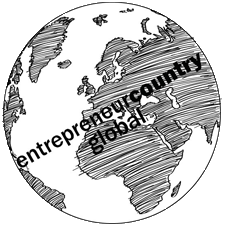Russian Venture Capital: What Entrepreneurs Need to Know
Russia currently has the largest online market in Europe. It is estimated that there are 66 million people online, with the Russian internet market expected to grow by around 15%-20% year-on-year up until 2018. This rapid growth has created a burgeoning tech scene and a Russian venture market full of highly experienced investors and tech experts. This makes the Russian tech market, for those who enter into it, an industry bursting with opportunities.
One of the biggest hurdles for Western entrepreneurs entering the Russian tech scene is generally fear of the unknown. The prospect of brokering investment from Russian backers can seem daunting. However, the cultural differences which do exist are by no means insurmountable – with a little context and industry background, the task of securing funding can be made that bit easier.
First, it is important to realise that Russia is currently undergoing a revolution in investment similar to the changes the US underwent half a century ago. In the US, the first VC funds were established after the Second World War. By the 1970s, some of these funds had evolved to target early stage company development. Only in recent years, has a similar system developed in Russia.
In Russia, venture capital funds have not yet developed themselves into worldwide brands – there are currently no Russian equivalents to Sequoia or Summit Partners. At the initial stage of Russia’s VC market development, simply having the money and the expertise has been enough.
It is important to note that good projects to invest in are at a premium in Russia. As a result, VCs are now actively selling themselves to entrepreneurs. While this is obviously a great boon to entrepreneurs, it does throw up the tough challenge of identifying the right fund.
When assessing a VC, it is strongly advisable to look past the simple goal of gaining financial investment. For example, iTech Capital offers portfolio companies financial and corporate governance expertise and professional support in M&A, business development and marketing. In the Russian market, this type of additional support from investors cannot always be expected.
The perception of risk is something which also differs in Russia compared to the rest of the world. The Russian startup sector contains a blend of European and Asian approaches which both tend to be more risk averse than the traditional US approach.
Perhaps the main difference in Russia that entrepreneurs need to be aware of is the active role the state plays in investment. The Russian government regularly invests through grants, investment rounds and acquisitions. The principle behind this active role is that the state can help to foster public-private partnerships which will then in turn support domestic innovation. These partnerships are ideal for helping high risk projects receive serious capital at an early stage, especially as private investors are more willing to commit funds when the state acts as a guarantor. In some cases not being a Russian national can play to your advantage, with the state often preferring to grant funds to teams containing one or two foreign nationals, due to the increased experience brought by international teams. With that in mind, entrepreneurs who actively seek to make contacts in the government could potentially open up a new avenue of investment.
In terms of the complexity of deal making and buoyancy of the Russian VC market, there is little to differentiate it from the West. One only has to look at some of the recent successful exits of several Russian VC firms, for example, Runa Capital’s exit from enterprise cloud platform ThinkGrid in 2012. The sale of ThinkGrid to UK based Colt Technology Services earned Runa Capital 4.5 times the amount it initially invested in the startup. The successes of other high profile VCs such as Yuri Milner, who manages a portfolio worth a reported $3 billion highlight what the Russian venture community is capable of. The most recent success story is the IPO of QIWI plc on the NASDAQ in May 2013. QIWI plc is the largest Russian operator of electronic payment systems and was founded by a group of iTech Capital LPs. Since the date of the IPO, the company has tripled in size.
The Russian business landscape has been transformed over the last decade or so, with many entrepreneurs and investors stepping forward to take advantage of the booming tech scene. The results of this are evident in the successes of home-grown tech giants such as Yandex and Mail.ru. These leading tech companies are highly competitive with the Western market, for example in Russia, Yandex holds a 50% share of the search engine market, whereas Google commands only 37%. With strong growth in the tech sector and an array of experienced venture funds continuing to assert themselves – Russia provides a great market for entrepreneurs looking east.
- Tags: blog, entrepreneurs, featured, russia, start up
